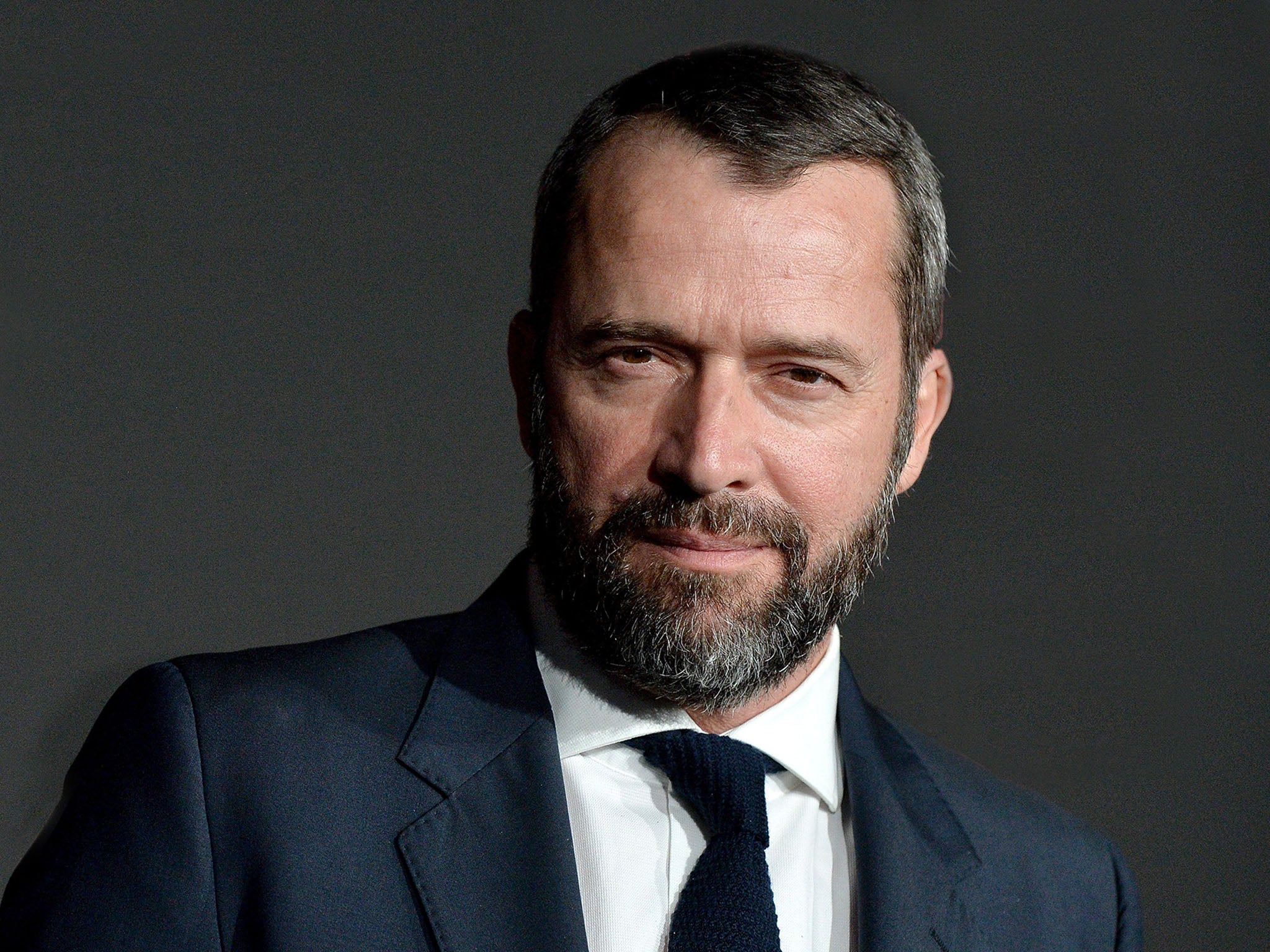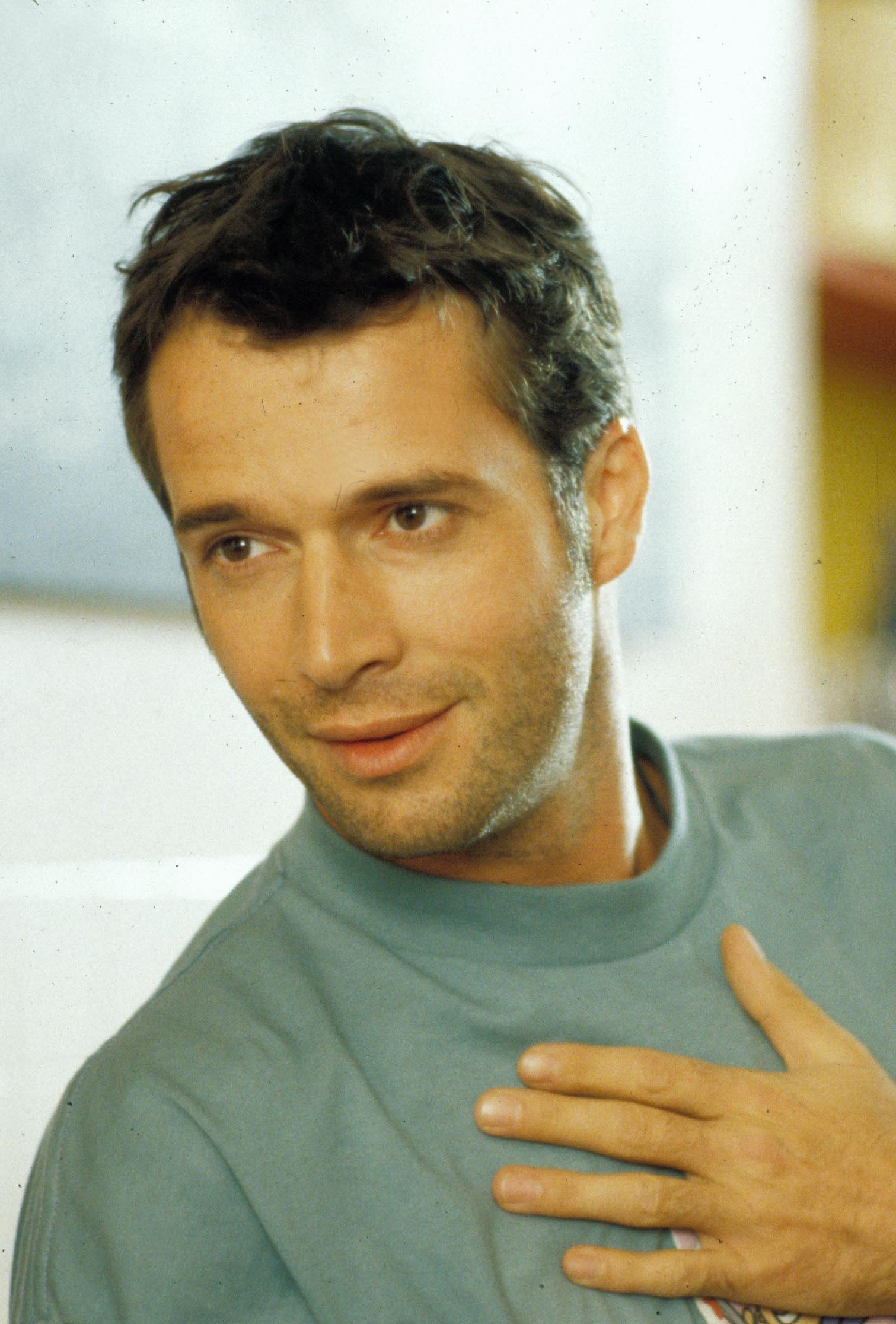James Purefoy: ‘Bond has plagued my life – the job I didn’t get!’
The star of Altered Carbon and Sex Education talks to Alexandra Pollard about his new thriller No Man’s Land, working through the resentment of being sent away to boarding school, and missing out on playing James Bond


Your support helps us to tell the story
From reproductive rights to climate change to Big Tech, The Independent is on the ground when the story is developing. Whether it's investigating the financials of Elon Musk's pro-Trump PAC or producing our latest documentary, 'The A Word', which shines a light on the American women fighting for reproductive rights, we know how important it is to parse out the facts from the messaging.
At such a critical moment in US history, we need reporters on the ground. Your donation allows us to keep sending journalists to speak to both sides of the story.
The Independent is trusted by Americans across the entire political spectrum. And unlike many other quality news outlets, we choose not to lock Americans out of our reporting and analysis with paywalls. We believe quality journalism should be available to everyone, paid for by those who can afford it.
Your support makes all the difference.You’re probably wondering why you’re interviewing me at all,” says James Purefoy. The star of Altered Carbon and Sex Education isn’t being self-deprecating. It’s just that in the four episodes I’ve been given of his new series, No Man’s Land, the 56-year-old shows up for a grand total of three minutes. I’d started to worry that I was watching the wrong show. “I can assure you,” says Purefoy with a laugh, “he does appear!”
Still, what I’ve seen of the Syrian War-set drama – the third episode of which is released on the Starzplay app this Sunday – is pretty gripping stuff. It follows Frenchman Antoine (Felix Moati), who gets caught up with the YPJ, the (real) group of female fighters who took up arms against the Islamic State in 2011. On the other side of the fighting are three radicalised British men, childhood best friends who left west London to join the Islamic state. But one of them, Nasser (James Krishna Floyd), has secretly become an informant for a mysterious organisation headed up by a man called Stanley. Enter Purefoy.
“It’s hard to tell you about Stanley because it’s a bit of a spoiler,” says Purefoy, speaking over Zoom from his Somerset home. “He’s an enigmatic person, in the sense that we don’t really know who he’s working for. He’s highly intelligent, he’s incredibly manipulative, and he does the job exceptionally well. It’s tricky talking about him, because I don’t want to give the game away. I think we can say that he works in the shadowy world of intelligence.”
This is the second time this year that Purefoy has plunged into that shadowy world. For the Amazon Prime thriller El Candidato, about Mexican drug cartels, he spent countless hours researching the life of a CIA field officer. “The world of espionage is just fascinating,” he says. “It’s such fertile ground for an actor to mine. I could quite happily spend my life playing spies.”
Purefoy very nearly played the most famous spy of all. Twice he came within a hair’s breadth of playing James Bond: first narrowly losing out to Pierce Brosnan in the Nineties, and then being pipped at the post by Daniel Craig the following decade. He says now that there was some self-sabotage at play. “There have been jobs, Bond being one of them, where you get very close to getting something and then you start pulling away because the ramifications of what would happen if you got it become a little troubling,” he says. “The closer I got to Bond, the more I wasn’t really sure.”
He says that Craig – who will make his final appearance as 007 whenever No Time To Die deigns to come out – struggled with those same reservations. “From what I gather, he turned it down two or three times because of a similar thing – being uncomfortable with being locked into a massive corporate world where you’re gonna spend more time publicising the movie and wearing watches and suits and having to go to photo shoots and publicity drives… and you end up having to deal with a lot of stuff that you’d just really rather not deal with because it’s not your job. It’s not what you do. What you do is exist as somebody else between action and cut. That’s the purest and most interesting part of the job.”
He sighs. “The Bond thing…” Another sigh. “I kind of wish it had never been found out that I’d gone up for Bond. It has plagued my life – the job that I didn’t get.”
Let’s talk about the jobs he did get, then. After making his film debut in the Merchant Ivory drama Feast of July, Purefoy starred in the ground-breaking gay comedy-drama Bedrooms and Hallways, alongside other bright young things on the cusp of fame: Hugo Weaving; Tom Hollander; Jennifer Ehle; Harriet Walter; Simon Callow. “I was delighted with the film, because it painted a picture of a group of people we hadn’t seen that much of at all,” says Purefoy, who became something of “a pin-up boy”, he says, playing sexually flexible Irishman Brendan. “I suppose it was quite subversive at the time, because it was making assumptions that everybody’s fluid. You might be one per cent fluid, you might be 50 per cent fluid, who knows what we all are. If you find somebody attractive now, well that’s the way it is! Never say never.”
From there, Purefoy put the enigmatic charm that got him so close to Bond to more eclectic use. There was the self-centred Tom Bertram in Mansfield Park (1999); the humble Edward the Black Prince alongside Heath Ledger in A Knight’s Tale; and the roguish army captain who falls in love with Reese Witherspoon in 2004’s Vanity Fair. In 2006, he starred as a philandering Mark Antony in the obscenely expensive BBC/HBO drama series Rome. He spent two years living in Italy on that job, and met his wife, the producer Jessica Adams, there. “The whole atmosphere on set was like a cocktail party,” he recalls. “Takes were a rude interruption to anecdotes.”
More recently, Purefoy’s made a splash on Netflix, playing a 360-year-old billionaire in the sci-fi series Altered Carbon, and Otis’s egotistical dad Remy in the hugely popular teen series Sex Education. “You feel for Remy at the end,” says Purefoy of the latter role. “Yes, he’s a dick and he throws rocks in the pool of other people’s lives, but he’s coming from not such a bad place.”

Clearly, Purefoy likes roles that are a little morally complex. “Making monsters out of people doesn’t get us anywhere,” he says. Take those young men in No Man’s Land who turned to terrorism. “Until you understand that these are people with lives and backgrounds and mums and dads, until you start realising that it’s people who do monstrous acts, not monsters, you don’t get anywhere in understanding the situation or preventing it happening again. It’s quite an easy and lazy excuse to go, ‘Oh, he’s evil.’ It simply puts somebody in a box and means you don’t have to deal with it.”
Softly spoken when he’s not treating me to re-enactments of past roles, Purefoy is one of the most articulate people I’ve spoken to. He has a casual, confident air about him, one that I later discover – when he emails to clarify an answer, berating himself for “how much I seem to waffle” – might not be the full picture. Still, he seems like a man who’s comfortable in his own skin. Perhaps this is thanks to the two-and-a-half years spent in “expensive therapy” in his late-twenties, mostly to unpick the resentment of being sent to boarding school at the age of seven.
“I think if you’re sent away by your parents, you often have a sense of blame about that,” says Purefoy. He went to Sherborne in Dorset, whose alumni include Jeremy Irons and Chris Martin, and left with one O Level (he later went to night school and got 11 more). “It’s like a spaghetti in your chest that needs to be combed out. You come out the other side and just go…” He lets out a long, slow breath. “‘It’s fine. They did what they did. They did what they did because that’s what their parents did, and that’s what their parents did, and to blame them is a waste of time. Blaming other people for it is a negative and pointless exercise.’” Then again, he adds, “it’s not something I would choose for my kids”.
When he left school, Purefoy threw himself into acting. His first paid job was in Equus, as Alan Strang, a disturbed teenager who has a religious fascination with horses. The production toured for about six months, hopping from proscenium arch-stages to small library theatres – but it was one night in Ipswich that changed Purefoy’s life. “I suddenly felt like a megalomaniacal dictator,” he says, “because I felt the power of acting – how you can have 700 people in the palm of your hand. You know that you can get them to do pretty much anything at that moment. You can get them to laugh, get them to cry…” He has been chasing that feeling ever since – that specific and intoxicating silence where “the people in the audience cease shifting in their seats. That cough that they thought they couldn’t help doing, they stop doing it. So for two or three minutes on stage – it might be even less – it’s such a powerful feeling to know that they’re totally yours.”
What about in the world of film and TV, where you’re surrounded not by an audience but by cameras, crews and cables? Is there an equivalent experience there? “It can be quite spiritual,” says Purefoy. He stops and closes his eyes. I wonder if he’s having a spiritual experience here and now, but it turns out he’s cringing at his use of the world ‘spiritual’. “I use that word with caution,” he says with a smile, “but you really do forget who you are. Obviously the conundrum is that the moment you realise you’ve forgotten who you are, you’re then back out of it, and you’re aware you’re acting again. But for one blissful, heavenly moment, you are not yourself. You are somebody else. If you can find a moment within a take where that displacement of your self happens, it’s intense and thrilling.” He shrugs. “But it doesn’t go on forever.”
No Man’s Land continues on Sunday via the StarzPlay app on Amazon Prime and Virgin TV


Join our commenting forum
Join thought-provoking conversations, follow other Independent readers and see their replies
Comments